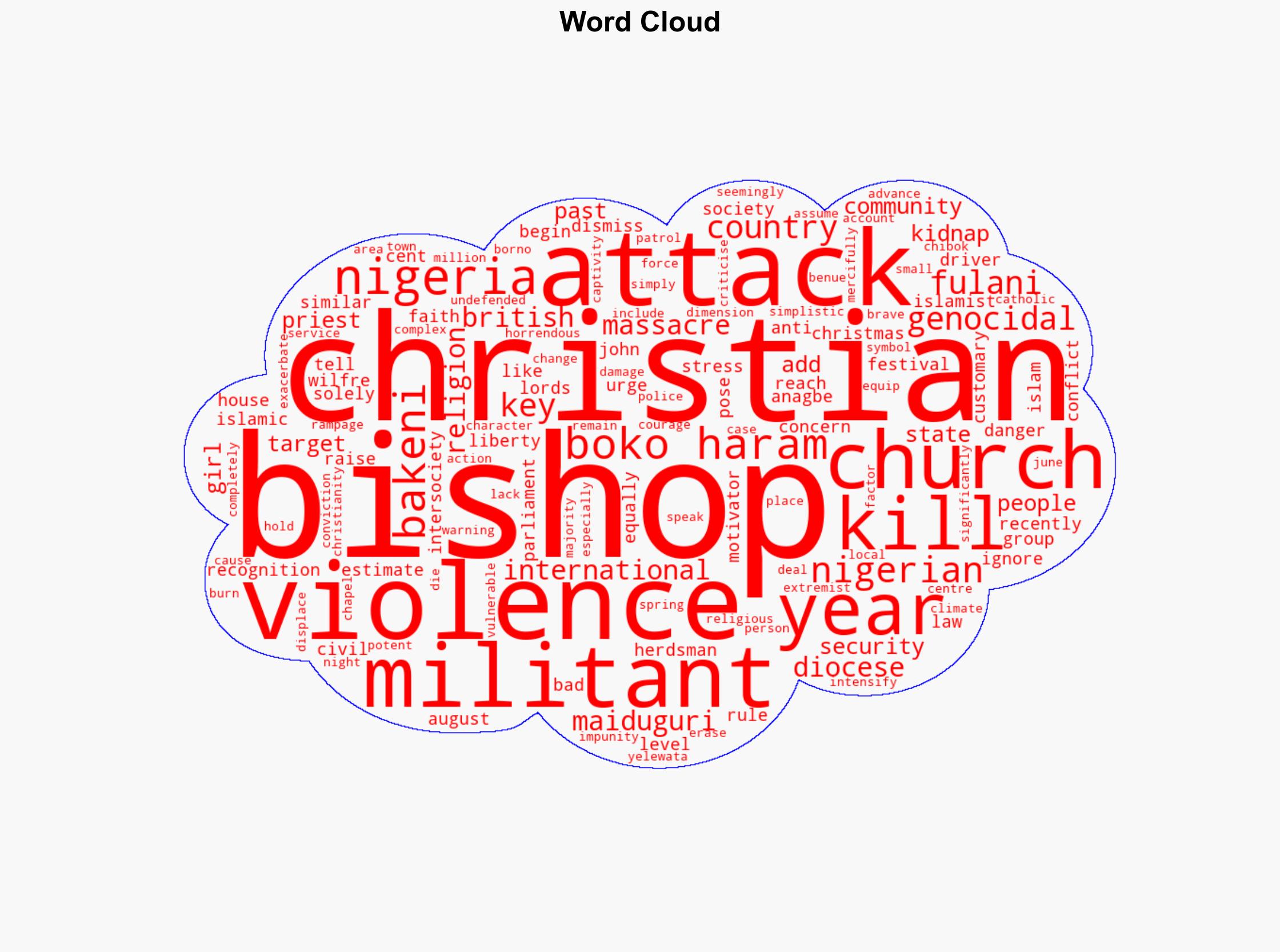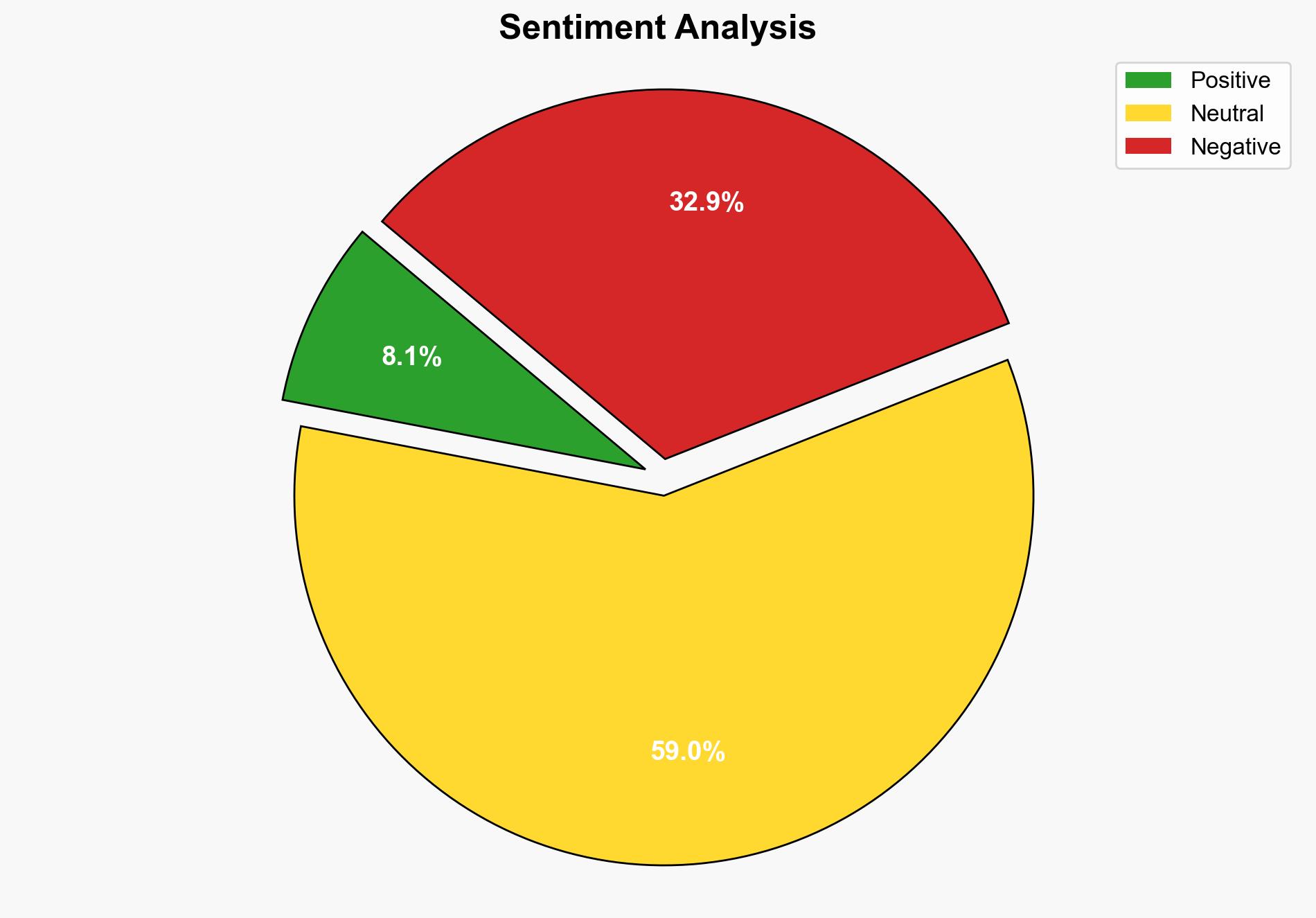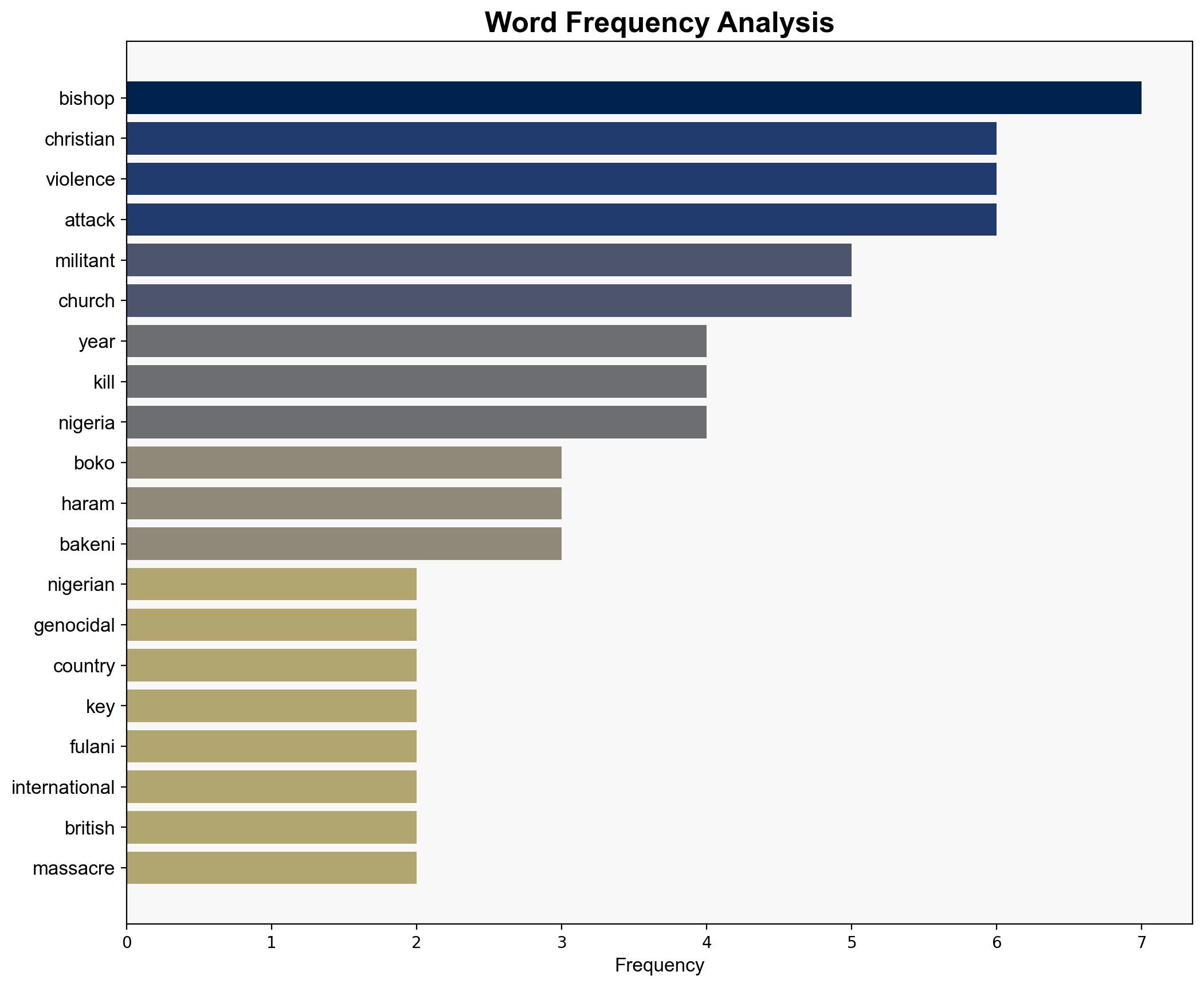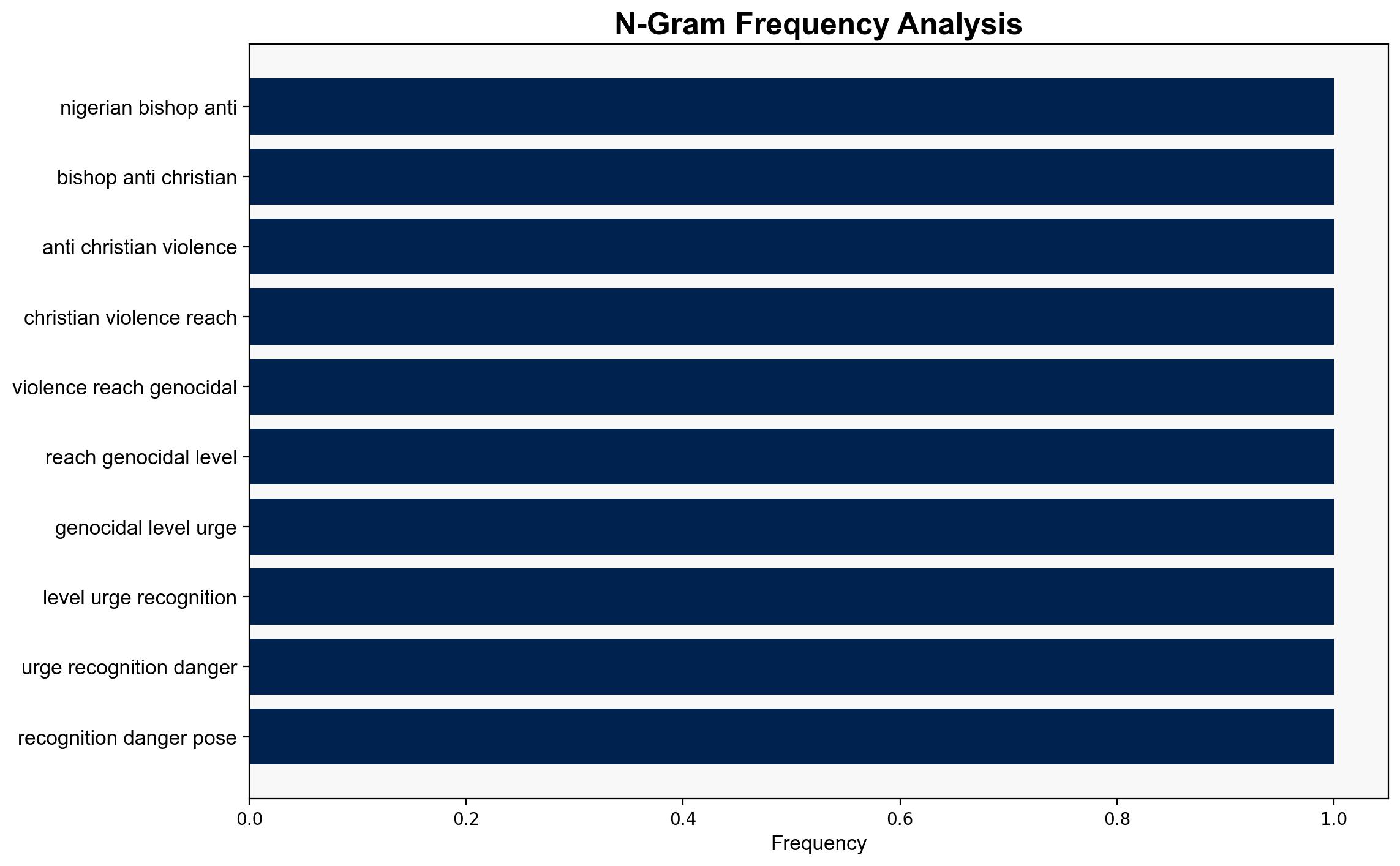British Parliament told of ‘genocidal’ anti-Christian violence in Nigeria – Christiantoday.com
Published on: 2025-10-24
Intelligence Report: British Parliament told of ‘genocidal’ anti-Christian violence in Nigeria – Christiantoday.com
1. BLUF (Bottom Line Up Front)
The most supported hypothesis is that the violence against Christians in Nigeria is primarily driven by militant Islamist groups, with religion as a significant motivator. This assessment is made with a moderate confidence level due to the complexity of the conflict and multiple contributing factors. Recommended action includes increased international diplomatic pressure on the Nigerian government to enhance security measures and address the root causes of the violence.
2. Competing Hypotheses
1. **Hypothesis A**: The violence against Christians in Nigeria is primarily driven by militant Islamist groups like Boko Haram and Fulani militants, with religion being a significant motivator.
2. **Hypothesis B**: The violence is a result of broader socio-economic and political issues, with religion being used as a tool to exacerbate existing tensions.
Using the Analysis of Competing Hypotheses (ACH) 2.0, Hypothesis A is better supported by the evidence, particularly the statements from bishops and the pattern of attacks on religious symbols and figures. Hypothesis B is plausible but less directly supported by the specific incidents described.
3. Key Assumptions and Red Flags
– **Assumptions**: It is assumed that the primary drivers of violence are accurately reported and that religious motivations are not overstated.
– **Red Flags**: Potential bias in reporting due to religious affiliations of sources. Lack of comprehensive data on socio-economic factors contributing to violence.
– **Blind Spots**: Insufficient exploration of non-religious motivations and the role of government and military responses.
4. Implications and Strategic Risks
The continuation of violence could lead to further destabilization of Nigeria, with potential spillover effects in the region. There is a risk of increased displacement and humanitarian crises, as well as potential radicalization if grievances are not addressed. The international community’s perception of Nigeria could be adversely affected, impacting foreign investment and aid.
5. Recommendations and Outlook
- Enhance intelligence-sharing and cooperation with Nigerian authorities to improve early warning systems and response capabilities.
- Encourage dialogue between religious and community leaders to address underlying tensions.
- Scenario Projections:
- **Best Case**: Successful diplomatic interventions lead to a reduction in violence and improved security.
- **Worst Case**: Escalation of violence results in widespread instability and humanitarian crises.
- **Most Likely**: Continued sporadic violence with limited international intervention, maintaining the status quo.
6. Key Individuals and Entities
– Bishop Wilfre Anagbe
– Bishop John Bakeni
– Boko Haram
– Fulani militants
7. Thematic Tags
national security threats, counter-terrorism, regional focus





